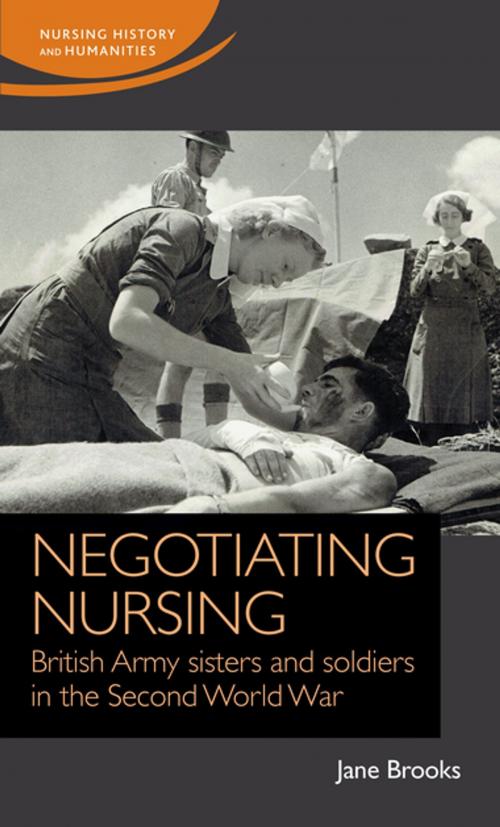Negotiating nursing
British Army sisters and soldiers in the Second World War
Nonfiction, Health & Well Being, Medical, Reference, History, Military, World War II, Social & Cultural Studies, Social Science, Gender Studies| Author: | Jane Brooks | ISBN: | 9781526119087 |
| Publisher: | Manchester University Press | Publication: | August 1, 2018 |
| Imprint: | Manchester University Press | Language: | English |
| Author: | Jane Brooks |
| ISBN: | 9781526119087 |
| Publisher: | Manchester University Press |
| Publication: | August 1, 2018 |
| Imprint: | Manchester University Press |
| Language: | English |
Negotiating Nursing explores how the Queen Alexandra's Imperial Military Nursing Service (Q.A.s) salvaged their soldier-patients within the sensitive gender negotiations of what should and could constitute nursing work and where that work could occur. The book argues that the Q.A.s, an entirely female force during the Second World War, were essential to recovering men from the battlefield and for the war, despite concerns about women’s presence on the frontline. Using personal testimony the book maps the developments in nurses’ work as they created a legitimate space for themselves in war zones and established their position as the expert at the bedside. Yet, despite the acknowledgement of nurses’ vital role in the medical service, their position was gendered. As the women of Britain were returned to the home post-war, it was the military nurses’ womanhood that stymied their considerable skills from being transferred to the new welfare state.
Negotiating Nursing explores how the Queen Alexandra's Imperial Military Nursing Service (Q.A.s) salvaged their soldier-patients within the sensitive gender negotiations of what should and could constitute nursing work and where that work could occur. The book argues that the Q.A.s, an entirely female force during the Second World War, were essential to recovering men from the battlefield and for the war, despite concerns about women’s presence on the frontline. Using personal testimony the book maps the developments in nurses’ work as they created a legitimate space for themselves in war zones and established their position as the expert at the bedside. Yet, despite the acknowledgement of nurses’ vital role in the medical service, their position was gendered. As the women of Britain were returned to the home post-war, it was the military nurses’ womanhood that stymied their considerable skills from being transferred to the new welfare state.















